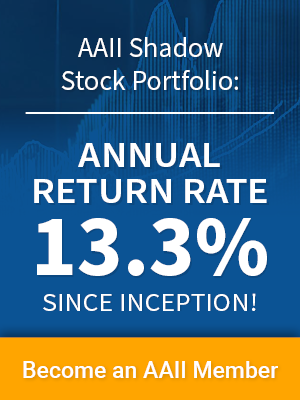Have you ever experienced the regret of an expensive purchase and the sinking feeling that follows? Overvalued stocks can provoke the same emotions. When a stock’s price far exceeds its fundamental earnings and revenue, or it boasts a high P/E ratio compared to its peers, it may raise questions. In this article, we explore whether Advanced Micro Devices, Inc. (AMD) fits this description, and the reasons behind it. Will it turn out to be overvalued?
In this article, we dive into why Advanced Micro Devices, Inc. could be considered overvalued as of January 30, 2026, based on AAII’s Value Score and Grade.
Key takeaways:
- Comparing potential overvaluations in the Semiconductors & Semiconductor Equipment sector
- Utilizing the AAII Value Score and Grade to evaluate if (AMD) is overvalued
- The reasons why Advanced Micro Devices, Inc. might be overvalued: an analysis of key metrics
What Is an Overvalued Stock?
Overvalued stocks arise from high expectations, past growth, and demand. Investors compare them with peers but not all are bad investments. Factors like reversion to mean and analyst expectations affect price volatility. Despite risks, growth investors may find some appealing for long-term potential. Effective methods exist to identify overvalued stocks.
How to Use the AAII Value Grade to Screen for Overvalued Stocks
The AAII Value Grade combines six key valuation metrics, including P/S ratio, P/E ratio, EV/EBITDA ratio, shareholder yield, P/B ratio, and P/FCF ratio. AAII members use this composite valuation to find cheap or expensive stocks, with grades ranging from A to F. Stocks are ranked based on percentile rankings for each metric, and the average ranking places them in quintiles from cheapest (A grade) to most expensive (F grade). Follow this link to learn more about AAII’s Value Score and Grade. Subscribe to A+ Investor 100% risk free with our 90-day money-back guarantee.
Sign Up to Receive a Free Special Report Showing How A+ Grades Can Help You Make Smarter Investment Decisions
Advanced Micro Devices, Inc.’s Value Grade
Value Grade:
| Metric | Rank | AMD | Sector Median |
| Price/Sales | 91 | 12.00 | 3.02 |
| Price/Earnings | 95 | 123.9 | 29.9 |
| EV/EBITDA | 94 | 56.5 | 18.9 |
| Shareholder Yield | 52 | (0.4%) | (1.6%) |
| Price/Book Value | 83 | 6.34 | 3.22 |
| Price/Free Cash Flow | 88 | 70.5 | 24.5 |
As of January 30, 2026, Advanced Micro Devices, Inc. has a price-to-sales ratio of 12, which is 164.9% higher than the industry median at 4.53. Its price-earnings ratio is 123.9 and its EV/EBITDA ratio is 56.5.
Advanced Micro Devices, Inc.’s shareholder yield is -0.4%, higher than the Semiconductors & Semiconductor Equipment industry average at -0.9%.
Finally, its price-to-book ratio is 6.34. and its price-to-free-cash-flow ratio is 70.5. Stocks with a Value Score from 0 to 20 are considered deep value, those with a score between 21 and 40 are considered a value and so on.
Advanced Micro Devices, Inc.’s Value Score is 5, which translates to a Value Grade of F and is considered to be Ultra Expensive.
What Investors Should Know About Advanced Micro Devices, Inc. (AMD) Valuation
Valuation assessments often vary, but the AAII Stock Grades offer a consistent method for evaluating stocks. The chart provided above allows you to compare the valuation metrics of Advanced Micro Devices, Inc. against the industry median, giving you a clear perspective on how it stands in comparison.
Data as of January 30, 2026. By considering these metrics, we determine if a stock is under/overvalued. In this case, the composite score shows that Advanced Micro Devices, Inc. is Ultra Expensive at this time.

AAII is not a registered investment adviser or a broker/dealer. Readers are advised that articles are provided solely for informational purposes and should not be construed as an offer to sell or the solicitation of an offer to buy securities. Read the full AAII disclaimer.
 Included With AAII Platinum
Included With AAII Platinum
at only 6.9%
Since Inception. Data as of 12/31/2024.

769.3% Stock Superstars Portfolio Total Return Since Inception

U.S. Index ETF (IYY)
SSR Group 3 O'Shaughnessy portfolio has a 411.2% gain since inception performance compared to IYY at only 119.1%% Performance as of 11/29/24.
FREE REPORT

BECOME A MEMBER FOR ONLY $2
Get access to powerful investment discovery tools and a wealth of investment education to help you achieve your financial goals.




